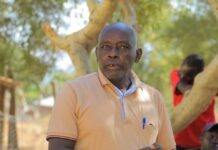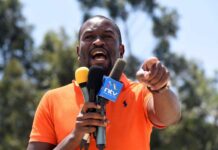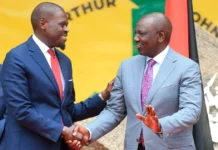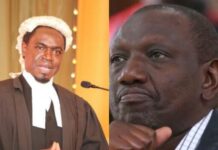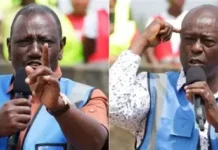Kenya marks Saba Saba Day on Monday under tense and heavily policed conditions, as security forces blocked key roads in Nairobi to prevent possible protests amid growing public anger over economic hardship, corruption, and state repression.
Saba Saba Day, July 7, commemorates the 1990 pro-democracy uprising that challenged the autocratic rule of former President Daniel arap Moi, leading to the restoration of multi-party democracy.
But this year, it arrives at a time when many Kenyans, particularly youth, say the democratic ideals fought for decades ago are under threat once again.
The capital’s streets were eerily silent on Monday, with major roads barricaded and most businesses shuttered. Police presence was visible across the city, and movement into the central business district was heavily restricted. Social media was abuzz with criticism of the lockdown, with activist Hanifa Aden posting on X: “The police getting rained on as they block every road while we stay at home warming our beds… Total shutdown and forced holiday executed by the state.”
Tensions remain high following recent anti-government protests that have turned violent. Since June, at least 80 people have reportedly died in demonstrations, while dozens have been detained in what rights groups are calling enforced disappearances. Protesters accuse the state of deploying armed goons to discredit their movement, a charge the government denies, likening the unrest to an “attempted coup.”
On Sunday, chaos erupted at a press conference organized by the Kenya Human Rights Commission, when unidentified men, some armed with sticks, stormed the venue, disrupting calls to end extrajudicial killings and unlawful detentions.
Although President William Ruto, elected in 2022, maintains political dominance through an alliance with opposition leader Raila Odinga, experts warn that state violence is only stoking further dissent.
“Every time people organise a protest, they kill more people, so it just continues to feed off itself,” said activist Nerima Wako. Political analyst Gabrielle Lynch echoed the sentiment, noting, “They don’t seem to have realised the world is different… People don’t have the same inbuilt fear of the state.”
While protests were largely subdued Monday due to fear of further violence, the mood in Nairobi reflected simmering discontent, and a growing sense that Kenya’s youth are unwilling to stay silent for much longer.
Written By Rodney Mbua












